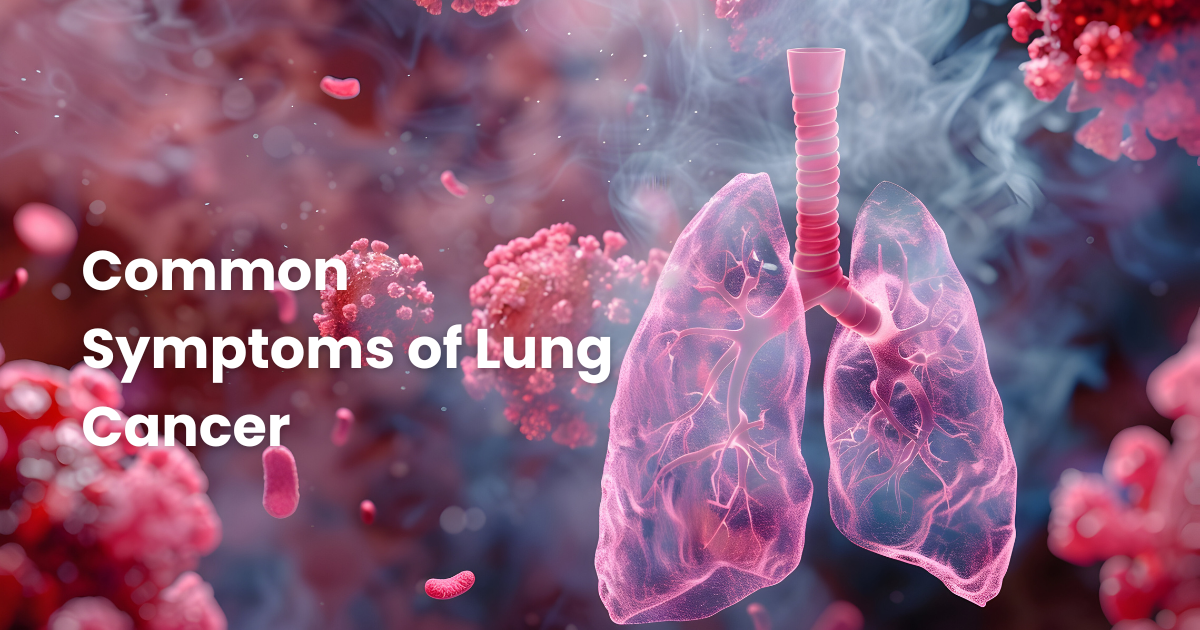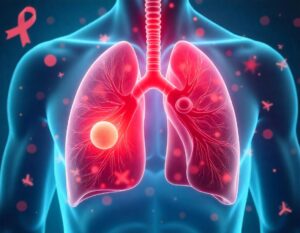Lung cancer remains one of the most serious and widespread cancers worldwide, claiming millions of lives every year. While advances in treatment have significantly improved outcomes for many patients, early detection remains the key to better survival rates. Unfortunately, lung cancer symptoms are often mistaken for less severe health issues, leading to delays in diagnosis. In this blog, we’ll explore the common symptoms of lung cancer and why paying attention to them is crucial for early intervention.
Understanding Lung Cancer
Lung cancer occurs when abnormal cells in the lung grow uncontrollably, forming a tumor. Over time, this tumor can spread to other parts of the body if not detected and treated early. There are two main types of lung cancer: small-cell lung cancer (SCLC) and non-small-cell lung cancer (NSCLC), with NSCLC being more common. Smoking is by far the leading cause of lung cancer, but non-smokers can also develop the disease due to factors like environmental exposure, genetics, or other lung conditions.
Persistent Cough
One of the most common and early signs of lung cancer is a cough that won’t go away. This cough may initially be dismissed as a minor irritation or thought to be related to a cold or allergies. However, when the cough persists for weeks or even months, it can be an indication that something more serious is happening in the lungs. A chronic cough, especially one that worsens over time, should not be ignored, particularly in smokers or those with a history of smoking.
Coughing Up Blood (Hemoptysis)
Coughing up blood, even in small amounts, can be a frightening symptom and is often a red flag for lung cancer. While this doesn’t always mean cancer, it is a serious symptom that requires immediate medical evaluation. The presence of blood in the sputum can indicate that the tumor is affecting the airways or surrounding tissues. In some cases, it may be accompanied by a change in the color or amount of mucus.
Shortness of Breath
Feeling short of breath or finding it difficult to catch your breath can be another warning sign of lung cancer. As the tumor grows and blocks the airways or as fluid builds up around the lungs, the ability to breathe deeply becomes more difficult. For some people, this shortness of breath may be gradual, while for others, it may happen suddenly, even during simple activities like climbing stairs or walking. This symptom is often mistaken for aging or poor fitness, but when it occurs without any clear explanation, it’s important to seek medical advice.
Chest Pain
Chest pain related to lung cancer can vary in intensity and type. Some people experience sharp, stabbing pain, while others may describe it as a constant ache. The pain may worsen with deep breathing, coughing, or laughing, which often leads people to attribute it to respiratory infections. However, persistent or worsening chest pain should never be overlooked, especially if it’s not linked to a recent injury or illness.
Hoarseness or Voice Changes
Changes in the voice, such as persistent hoarseness, can be an early symptom of lung cancer, particularly if the tumor is pressing on nerves that control the vocal cords. If your voice sounds raspy or hoarse for more than a few weeks without any clear cause like a cold, it may be time to visit a doctor for further evaluation. While hoarseness can be due to a variety of factors, it’s important to rule out any serious causes, including lung cancer.
Unexplained Weight Loss
Sudden and unintentional weight loss can be one of the first signs of an underlying cancer, including lung cancer. If you find yourself losing weight without trying, it’s important to investigate the cause. Cancer cells can use up much of the body’s energy supply, causing the body to lose weight even without a change in diet or activity level. This is often accompanied by a lack of appetite or a feeling of fullness after eating only a small amount.
Fatigue
Feeling tired all the time, even after a good night’s sleep, is a common symptom among people with lung cancer. Fatigue in cancer patients is different from regular tiredness; it is often described as feeling exhausted to the point where daily activities become overwhelming. This constant feeling of exhaustion can be a result of the body’s effort to fight the disease, the reduced oxygen supply due to lung damage, or other systemic effects of the cancer.
Wheezing
Wheezing, a high-pitched whistling sound while breathing, can occur when airways are partially blocked or narrowed. While wheezing is often associated with asthma or allergies, it can also be a symptom of lung cancer, particularly if it appears suddenly in someone without a history of asthma. The blockage caused by the tumor may make it more difficult to breathe, leading to this wheezing sound. If you notice unexplained wheezing, it’s important to have it checked out by a healthcare professional.
Frequent Lung Infections
Recurring lung infections, such as bronchitis or pneumonia, may also be a sign of lung cancer. Tumors can block the airways, making it easier for infections to take hold. If you find that you’re getting sick more frequently, or if your infections are harder to treat than usual, it could be an indicator that there’s something more serious going on in your lungs.
Less Common or Advanced Symptoms
In some cases, lung cancer can cause less common symptoms, especially if the disease has progressed or spread to other areas of the body. These symptoms might include:
- Bone Pain: If lung cancer spreads to the bones, it can cause significant pain, particularly in the back, ribs, or hips. The pain may become worse at night or with movement.
- Headaches and Neurological Symptoms: Lung cancer that has spread to the brain may cause headaches, dizziness, or even weakness and numbness in the limbs. Seizures or problems with balance and coordination can also occur in advanced stages.
- Swelling in the Face or Neck: Tumors can sometimes block blood flow, leading to swelling in the face or neck. This is often caused by the tumor pressing on large veins in the chest.
When to See a Doctor
While many of these symptoms can be caused by less serious conditions, it’s important not to dismiss them, especially if they persist or worsen over time. If you experience any of the symptoms listed above, it’s essential to see a doctor for further evaluation. Early detection is crucial in lung cancer, as it increases the chances of successful treatment.
If you are at higher risk for lung cancer—due to factors like smoking, exposure to secondhand smoke, or a family history of the disease—be especially vigilant about regular check-ups and screenings.
How Lung Cancer Is Diagnosed
If lung cancer is suspected based on your symptoms, a series of diagnostic tests will be conducted to confirm the diagnosis. These may include:
- Imaging tests: Chest X-rays and CT scans can help detect abnormal masses or nodules in the lungs.
- Biopsy: If an abnormality is found, a biopsy may be taken from the lung tissue to determine if it’s cancerous.
- Bronchoscopy: This procedure allows doctors to look inside the lungs and collect tissue samples for testing.
Early diagnosis through these methods can lead to more effective treatments and a better chance of survival.
Conclusion
Lung cancer is a serious disease, but understanding the symptoms can help in detecting it early and improving the chances of successful treatment. From persistent coughs and chest pain to more subtle signs like unexplained weight loss or fatigue, it’s important to listen to your body and take any unusual symptoms seriously. If you or a loved one experience any of the symptoms discussed in this blog, don’t hesitate to seek medical advice. Early detection saves lives, and the sooner lung cancer is diagnosed, the better the treatment outcomes.
If you or a loved one is experiencing symptoms that could indicate lung cancer or any other pulmonary issue, don’t wait. At Apex Pulmonology, our team of expert pulmonologists is dedicated to providing you with comprehensive care and the support you need.
Schedule your appointment today! Contact us or visit our website at to book your consultation. Your health is our priority, and together, we can take the necessary steps towards better lung health.







